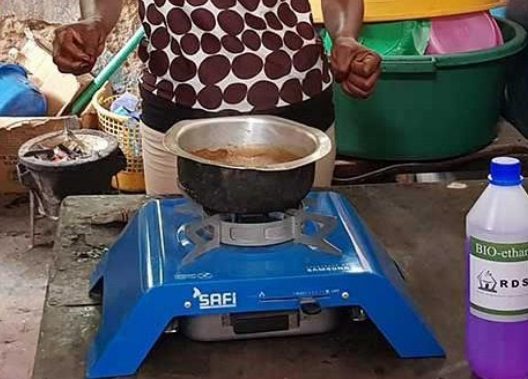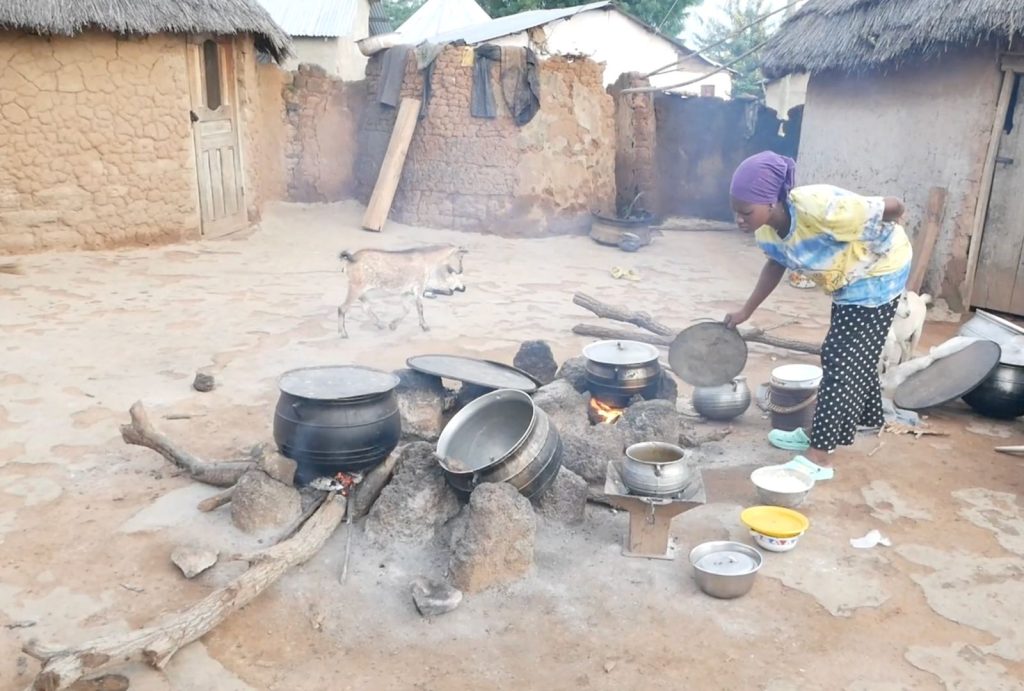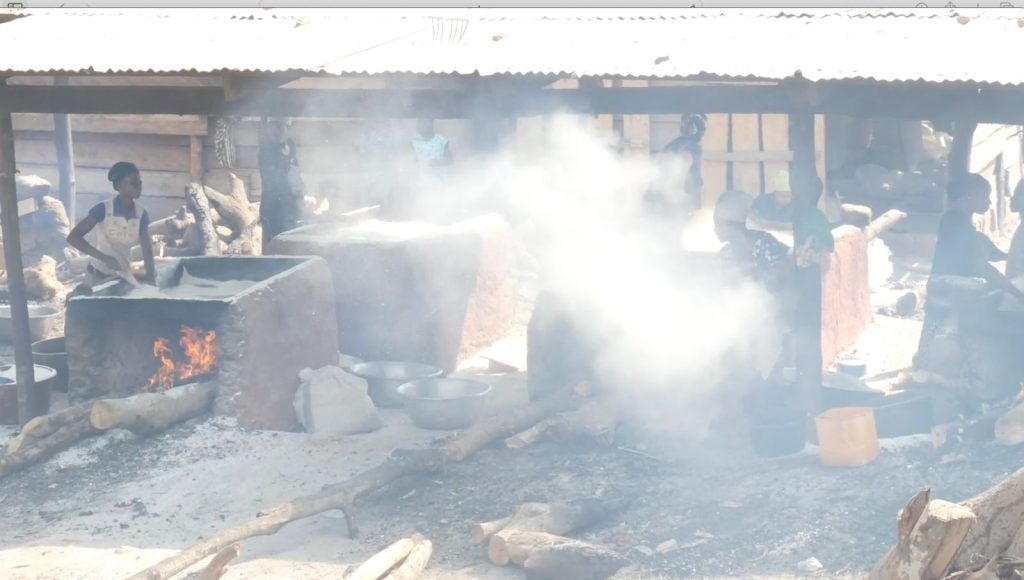By Albert Oppong-Ansah
Accra, Feb. 23, GNA – The warm aroma of simmering garden eggs stew fills the air as Akos, a mother of four, bends over her traditional cookstove, stirring the evening meal.
The thick smoke rising from the burning charcoal swirls around her, stinging her eyes and making her cough.
For years, this has been her reality—one that she, like many Ghanaian women, has come to accept.
However, experts are warning that this daily exposure to smoke is putting her life and the lives of her family members at risk.
Health professionals and researchers are also raising alarms over the impact of household air pollution caused by traditional cookstoves.
Dr Louisa Ademki Matey, the Metropolitan Director of Health Services for Accra Metro, is, therefore, advocating for a transition to clean cookstoves, urging husbands to take an active role in ensuring their families’ well-being.

“Women, who are primarily responsible for cooking, are inhaling harmful chemicals released by firewood and charcoal stoves, which expose them to respiratory illnesses, eye irritation, stroke, diabetes, and chronic diseases such as lung cancer,” she explains.
Beyond respiratory diseases, Dr Matey highlights the lesser-known effects of smoke exposure on women’s reproductive health.
“Inhaling smoke can disrupt hormones like oestrogen and progesterone, leading to menstrual irregularities, reduced fertility, and pregnancy complication,” she warns.
A study conducted by the University of Cape Coast on air pollution awareness and perception in Ghana has revealed that household air pollution is a major contributor to poor air quality.
The report finds that eight out of ten women are exposed to harmful cooking smoke, while four out of ten children and two out of ten men are also affected.
Therefore, addressing household air pollution is crucial for improving public health and reducing long-term medical expenses.

Professor Emmanuel Y. Tenkorang, an Associate Professor at the Department of Environment, Governance, and Sustainable Development at the University of Cape Coast, is very concerned about the lack of attention given to indoor air pollution.
“Many homes still use charcoal, and some lack proper kitchens, forcing families to cook in corridors or enclosed spaces with poor ventilation. As a result, the smoke travels into bedrooms, exposing entire families to harmful fumes for extended periods,” he says.
He describes indoor air pollution as a ‘silent killer’ because it causes long-term medical conditions and reduces life expectancy. Yet, many people remain unaware of its severe consequences.
The experts are, therefore, calling on husbands to prioritise the adoption of cleaner cooking technologies such as Liquefied Petroleum Gas (LPG), improved biomass, electricity, and ethanol stoves.
Dr Matey stresses that investing in clean stoves is not only about convenience but also about saving lives.
“In the short term, using traditional cooking methods may seem cost-effective, but in the long run, the medical expenses that come with illnesses caused by exposure to dirty smoke far outweigh the initial cost of acquiring a clean stove,” she explains.
Prof Tenkorang is urging the government and regulatory bodies to enforce air quality laws and integrate better ventilation standards into housing plans.
Moreover, he calls on the Ministry of Energy and Energy Transition (MoEET) to roll out nationwide subsidies and infrastructure for LPG and clean energy solutions so that more households can access safer alternatives.
GNA checks reveal that the MoEET has already established a team working on harmonising regulations on clean cooking.

Furthermore, the team is developing the National Clean Cooking Policy to promote cleaner cooking technologies and fuels, with the aim of improving public health, protecting the environment, and enhancing social welfare.
Back in her kitchen, Akos wipes her teary eyes, while struggling to complete her family’s meal.
Like many Ghanaian women, she remains unaware of the invisible dangers lurking in the smoke-filled air she breathes daily.
But with increasing awareness and support from husbands, policymakers, and local authorities, the shift towards a healthier cooking culture in Ghana is within reach.
GNA